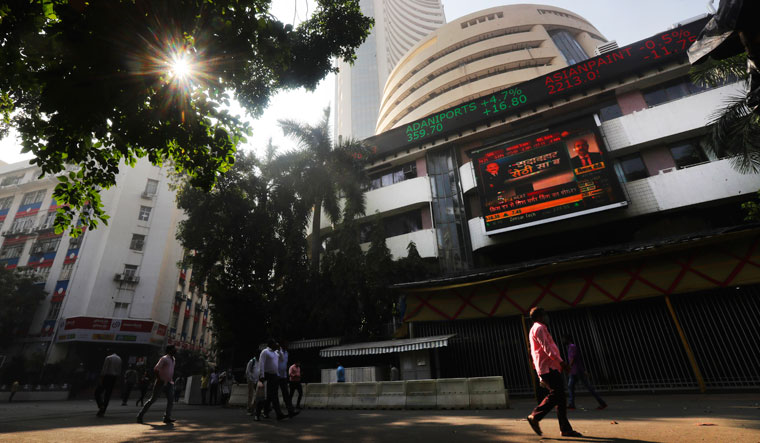Equity markets have been on a stellar run since their crash in March 2020. Barring minor corrections, the last year has seen a mostly upwards trajectory; both the BSE Sensex and NSE Nifty 50 have surged 52 per cent, driven by huge inflows from domestic retail investors. But, in the past few days, there have been at least two downgrades, suggesting the equity market rally may have been overdone.
Japan’s Nomura Securities downgraded India equities to “neutral.” It had upgraded India to “overweight” back in February 2021, but now valuations appear “very stretched.”
“We see an unfavourable risk-reward given valuations, as a number of positives appear to be priced in, whilst headwinds are emerging,” said Chetan Seth and Amit Phillips of Nomura.
The analysts said almost 77 per cent of the stocks in the MSCI India index were trading higher than pre-pandemic/post-2018 average valuations.
There have been several positive factors in favour of Indian markets—a strong momentum in COVID19 vaccinations, demand pickup and the business resumption index has stayed over 100 for several weeks.
However, multiple headwinds have emerged—Central banks are set to begin normalising their easy-money policies around the world, which will have a bearing on fund flows, core inflation has been sticky, and more importantly, commodity prices have surged, which will weigh on inflation as well as growth.
“Even on a two-year forward PE (price to equity) basis (incorporating India’s strong earnings outlook), India is trading at record high elevated premium relative to regional markets,” said Seth and Phillips.
Swiss investment bank UBS too is “underweight” on India’s equity market stating it was “extremely expensive.”
“The relative valuation of India to ASEAN, two areas with similar growth dynamics and occasional perceived macro vulnerabilities, looks too wide to justify,” noted UBS strategists Niall MacLeod and Karen Hizon in their report last week.
Retail investors have played outside, which while difficult to predict in terms of reversing, creates an additional potential headwind if this demand unwinds, they felt.
Several stocks, especially in the mid and small-cap space, have seen some correction in the last few days. The Nifty Midcap index, for instance, fell 6 per cent in the past week. So, how should investors navigate the market now?
“In the prevailing scenario, there are some global headwinds such as a spike in crude oil prices, rising inflation leading to an expected rise in global bond yields, equities trading at rich valuations etc. Concurrently, there are domestic tailwinds including benign cost of capital, low debt/equity, improving demand, free cash flows aiding sustainability of corporate earnings growth, massive capital inflows into the startup and private ecosystem that could generate employment and create infrastructure ” said Ashish Shanker, MD and CEO of Motilal Oswal Private Wealth.
He emphasizes asset allocation to maintain portfolio stability for the long term.
The strategy for equity is to invest 50 per cent in a lump sum and 50 per cent in a staggered manner over the next three months in multi-cap strategies and select mid and smallcap strategies, according to a report by Motilal Oswal Private Wealth.





